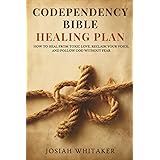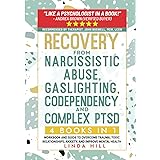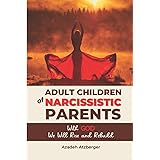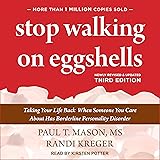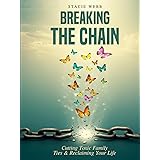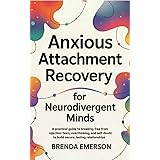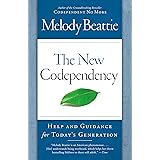The accompanying video provides a crucial overview of the often-overlooked issue of problem gambling, highlighting its definition, immediate warning signs, and severe repercussions. While the thrill of a wager can be an innocuous pastime for many, for millions of adults in the United States, gambling transcends entertainment and evolves into a debilitating addiction. This pervasive behavioral disorder, officially known as Gambling Disorder, can inflict catastrophic damage on individuals and their families, often without the visible cues associated with substance abuse.
Understanding the insidious nature of gambling addiction is the first step toward effective intervention and recovery. The National Council on Problem Gambling (NCPG) reports that millions grapple with severe gambling problems annually, underscoring the urgent need for widespread awareness. This article delves deeper into the diagnostic criteria, advanced warning signs, multifaceted impacts, and comprehensive pathways to support, expanding upon the vital information presented in the video.
Understanding Gambling Disorder: A Clinical Perspective
Problem gambling is not merely a bad habit or a lapse in judgment; it is recognized by the American Psychiatric Association in its Diagnostic and Statistical Manual of Mental Disorders (DSM-5) as a legitimate behavioral addiction. The NCPG aptly defines it as “behavior that’s damaging to a person or their family, often disrupting their daily life and career,” a definition that encapsulates the broad spectrum of its destructive influence. This condition manifests as a persistent and recurrent problematic gambling behavior leading to clinically significant impairment or distress.
One of the most insidious aspects of gambling disorder is its largely invisible nature. Unlike substance addictions, there are no immediate physical signs or tell-tale smells that betray the depth of the struggle. Consequently, individuals can conceal their escalating gambling activities for extended periods, exacerbating the financial, legal, and emotional fallout before detection. The internal battle, however, rages intensely, often characterized by a profound sense of shame and isolation, further entrenching the problematic behavior within a cycle of secrecy.
Recognizing the Advanced Warning Signs of Problem Gambling
The video astutely outlines several key indicators of gambling addiction, which warrant further exploration for a comprehensive understanding. These aren’t isolated incidents but rather a pattern of behaviors that escalate in intensity and frequency over time.
-
Persistent Preoccupation with Gambling: Beyond merely “thinking about gambling all the time,” individuals with gambling disorder often experience intrusive thoughts, fantasies, and constant planning around future betting activities. This cognitive distortion means their mind is frequently consumed by replaying past gambling experiences or strategizing for the next wager, fundamentally distracting them from daily responsibilities.
-
Escalation and Tolerance: A significant red flag is “feeling the need to bet more money, more often.” This mirrors the tolerance observed in substance addiction; the individual requires larger and more frequent wagers to achieve the desired level of excitement or ‘high.’ The initial thrill diminishes, compelling them to chase ever-greater stakes, creating a perilous upward spiral in financial exposure.
-
Chasing Losses: The compulsion to “try to win back money” is a hallmark of gambling disorder and a particularly destructive cognitive bias. After a significant loss, individuals may feel an overwhelming urge to continue gambling, convinced that they can recoup their losses with one big win. This irrational belief frequently leads to further, more substantial financial devastation, deepening the cycle of debt and despair.
-
Withdrawal Symptoms and Irritability: When attempts are made to “stop or cut back,” individuals often experience profound psychological distress, manifesting as “feeling restless or irritable.” This is akin to withdrawal symptoms seen in substance use disorders, indicating a significant neurobiological dependency. Agitation, anxiety, and an inability to focus are common, reinforcing the difficulty in ceasing the behavior independently.
-
Loss of Control and Failed Attempts to Cut Back: A critical diagnostic criterion is “feeling like you can’t control yourself.” This involves repeated, unsuccessful efforts to limit, reduce, or stop gambling. Despite genuine intentions, the internal compulsion proves overwhelming, leaving the individual feeling helpless and trapped within their addiction.
-
Gambling Despite Negative Consequences: Perhaps the most glaring sign is “gambling despite negative consequences.” This signifies a profound disconnect between behavior and its evident, detrimental impact. Financial ruin, relationship breakdowns, job loss, or legal troubles do not deter the individual, illustrating the powerful grip of the addiction over rational thought and self-preservation.
-
Deception and Secrecy: Often, individuals will lie to family members, therapists, or others to conceal the extent of their gambling involvement. This secrecy fuels the addiction, making it harder for others to intervene effectively and for the individual to seek help.
-
Jeopardizing Significant Relationships or Opportunities: Sacrificing or losing a significant relationship, job, or educational/career opportunity because of gambling is a clear indicator of the disorder’s severity. The addiction takes precedence over core life values and responsibilities.
-
Reliance on Others for Money: Using family members, friends, or institutions to bail them out of desperate financial situations caused by gambling is another common symptom, highlighting the profound economic distress experienced.
The Far-Reaching Consequences of Unchecked Gambling Addiction
As the video briefly touches upon, the implications of severe gambling problems extend far beyond the financial realm. These are not merely inconveniences but life-altering crises.
Financial Cataclysm and Legal Entanglements
The progression to “bankruptcy” is a grim reality for many, as relentless chasing of losses leads to insurmountable debt. This often involves maxing out credit cards, taking out predatory loans, or liquidating assets, leaving individuals in an irreversible financial hole. Consequently, “legal problems” can arise from unpaid debts, fraud, or even theft or embezzlement committed to fund the gambling habit, leading to criminal charges and incarceration.
Erosion of Social and Professional Life
The “loss of your job or family” is a devastating yet common outcome. The preoccupation with gambling severely impacts work performance, leading to absenteeism, decreased productivity, and eventual termination. Concurrently, relationships with family and friends erode due to lies, financial strain, broken promises, and neglect, often resulting in divorce or complete alienation.
Profound Mental Health Crisis
One of the most harrowing consequences mentioned is “suicidal thoughts.” The despair, shame, guilt, and hopelessness associated with gambling addiction are profound, leading to a significantly elevated risk of depression, anxiety disorders, and suicidal ideation. Studies indicate that individuals with gambling disorder have one of the highest rates of attempted suicide among all addictive disorders, underscoring the critical need for immediate mental health intervention.
Comorbidity and Health Deterioration
Beyond the direct impacts, gambling disorder frequently co-occurs with other mental health conditions, such as substance use disorders, depression, anxiety, and personality disorders. This comorbidity complicates treatment and recovery. Furthermore, chronic stress from gambling can lead to various physical health problems, including hypertension, sleep disturbances, and digestive issues, illustrating the holistic devastation caused by the addiction.
The Digital Age: Exacerbating Vulnerability
The advent of accessible online platforms means “devices make sports betting easier than ever.” This technological advancement, while offering convenience, has also amplified the risks associated with gambling. Instant access, micro-betting options, and in-play wagers mean individuals can gamble anytime, anywhere, often with minimal oversight. The gamification elements within betting apps can further blur the lines between entertainment and compulsive behavior, increasing vulnerability.
The American Gaming Association’s advice to “think before you gamble and monitor your behavior” is more critical than ever. This includes actively tracking time and money spent, setting strict limits, and adhering to them. It is paramount to “make sure you’re doing it on a legal site with responsible gaming protections,” as unregulated platforms offer no recourse or support for individuals who develop problems.
Fostering Responsible Gaming and Harm Reduction Strategies
To mitigate the risks associated with gambling, proactive harm reduction strategies and responsible gaming practices are essential. These principles go beyond mere advice, forming a protective framework for individuals who choose to participate in gambling activities.
-
Acknowledge the Odds and Understand the Game: “Knowing the odds” and “understanding the game” are foundational. Gambling is inherently designed to favor the house. Approaching it with realistic expectations, rather than a belief in guaranteed wins or personal luck, is crucial. Education about probability, variance, and the house edge can dispel common cognitive distortions.
-
Keep it Social and Budget-Oriented: Gambling should remain a social activity, not a solitary escape or a means to cope with stress or boredom. Establishing and strictly adhering to a pre-determined budget and time limit for each gambling session is non-negotiable. Funds allocated should be discretionary, never money needed for essential living expenses.
-
Utilize Self-Exclusion Programs: For individuals concerned about their gambling, self-exclusion programs offered by legal gambling operators are invaluable. These allow a person to voluntarily ban themselves from all forms of gambling for a specified period, offering a practical barrier to access.
-
Avoid Chasing Losses: This destructive pattern must be recognized and actively resisted. Once the allocated budget is exhausted, the session must end, regardless of the outcome. Chasing losses inevitably leads to greater debt and distress.
Supporting a Loved One Through Gambling Disorder
The interviewee’s counsel to “keep an eye on their habits” and “give that person the space to communicate” is invaluable for those concerned about a loved one. Intervention requires a delicate balance of compassion and firm boundaries.
Firstly, observe patterns: frequent discussions about gambling, secrecy, unexplained financial issues, increased anxiety around game outcomes, or mood swings. Secondly, when initiating a conversation, approach it from a place of love and concern, not accusation. Express specific observations rather than making broad generalizations. Offer support for seeking professional help and emphasize that addiction is a treatable condition, not a moral failing. Avoid enabling behaviors, such as bailing them out financially or covering up their lies. Family counseling can be highly beneficial in navigating this challenging journey, helping all parties understand the dynamics of addiction and establish healthy boundaries.
Pathways to Recovery and Comprehensive Support
Recovery from gambling addiction is a marathon, not a sprint, requiring multifaceted approaches and sustained commitment. The good news is that effective help is readily available, as highlighted in the video.
The National Council on Problem Gambling (NCPG) is a beacon of hope, providing a 24/7 confidential helpline at 1-800-GAMBLER. This resource offers immediate support, crisis intervention, and referrals to local treatment options. Additionally, their website, NCPGambling.org, is a treasure trove of information, offering self-assessment tools, educational materials, and a directory of treatment providers.
Beyond the NCPG, other vital pathways to recovery include:
-
Cognitive Behavioral Therapy (CBT): A highly effective therapeutic approach that helps individuals identify and challenge distorted thoughts and behaviors related to gambling, developing healthier coping mechanisms.
-
Gamblers Anonymous (GA): A 12-step peer support program, similar to Alcoholics Anonymous, providing a fellowship of individuals who share their experiences and support each other in recovery.
-
Family Therapy: Addressing the impact of gambling on the entire family unit and facilitating healing and communication.
-
Medication: For some, certain medications may help manage co-occurring mental health conditions or reduce urges, particularly when prescribed in conjunction with psychotherapy.
-
Financial Counseling: Essential for repairing the economic damage caused by gambling, developing budgeting skills, and managing debt effectively.
Ultimately, recognizing the insidious signs of gambling addiction and understanding its profound impact is the first critical step towards recovery. With appropriate support and intervention, individuals can reclaim their lives from the grip of compulsive gambling and build a sustainable future free from its devastating consequences.


